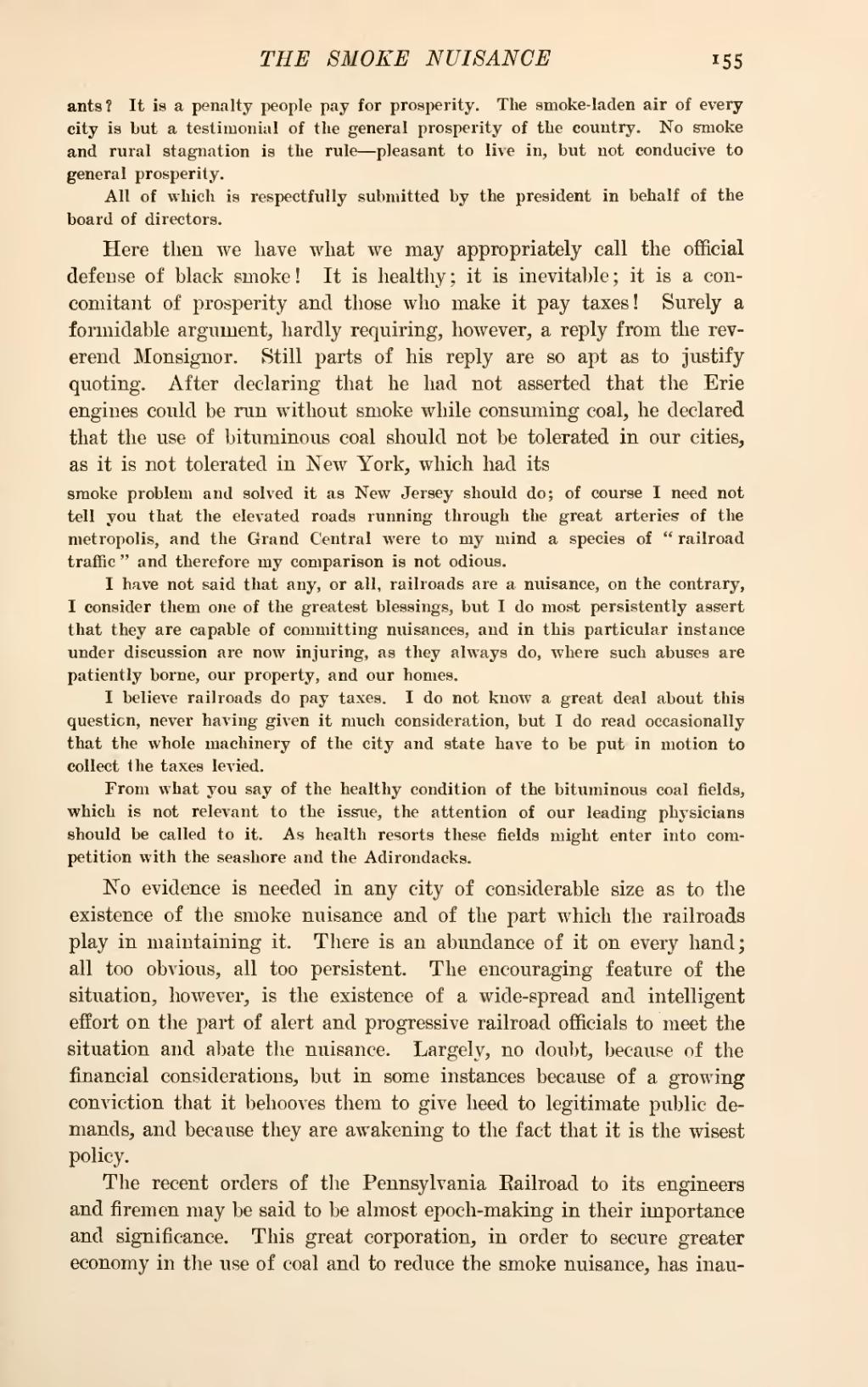ants? It is a penalty people pay for prosperity. The smoke-laden air of every city is but a testimonial of the general prosperity of the country. No smoke and rural stagnation is the rule—pleasant to live in, but not conducive to general prosperity.
All of which is respectfully submitted by the president in behalf of the board of directors.Here then we have what we may appropriately call the official defense of black smoke! It is healthy; it is inevitable; it is a concomitant of prosperity and those who make it pay taxes! Surely a formidable argument, hardly requiring, however, a reply from the reverend Monsignor. Still parts of his reply are so apt as to justify quoting. After declaring that he had not asserted that the Erie engines could be run without smoke while consuming coal, he declared that the use of bituminous coal should not be tolerated in our cities, as it is not tolerated in New York, which had its
I have not said that any, or all, railroads are a nuisance, on the contrary, I consider them one of the greatest blessings, but I do most persistently assert that they are capable of committing nuisances, and in this particular instance under discussion are now injuring, as they always do, where such abuses are patiently borne, our property, and our homes. I believe railroads do pay taxes. I do not know a great deal about this question, never having given it much consideration, but I do read occasionally that the whole machinery of the city and state have to be put in motion to collect the taxes levied.
From what you say of the healthy condition of the bituminous coal fields, which is not relevant to the issue, the attention of our leading physicians should be called to it. As health resorts these fields might enter into competition with the seashore and the Adirondacks.No evidence is needed in any city of considerable size as to the existence of the smoke nuisance and of the part which the railroads play in maintaining it. There is an abundance of it on every hand; all too obvious, all too persistent. The encouraging feature of the situation, however, is the existence of a wide-spread and intelligent effort on the part of alert and progressive railroad officials to meet the situation and abate the nuisance. Largely, no doubt, because of the financial considerations, but in some instances because of a growing conviction that it behooves them to give heed to legitimate public demands, and because they are awakening to the fact that it is the wisest policy.
The recent orders of the Pennsylvania Railroad to its engineers and firemen may be said to be almost epoch-making in their importance and significance. This great corporation, in order to secure greater economy in the use of coal and to reduce the smoke nuisance, has inau-

